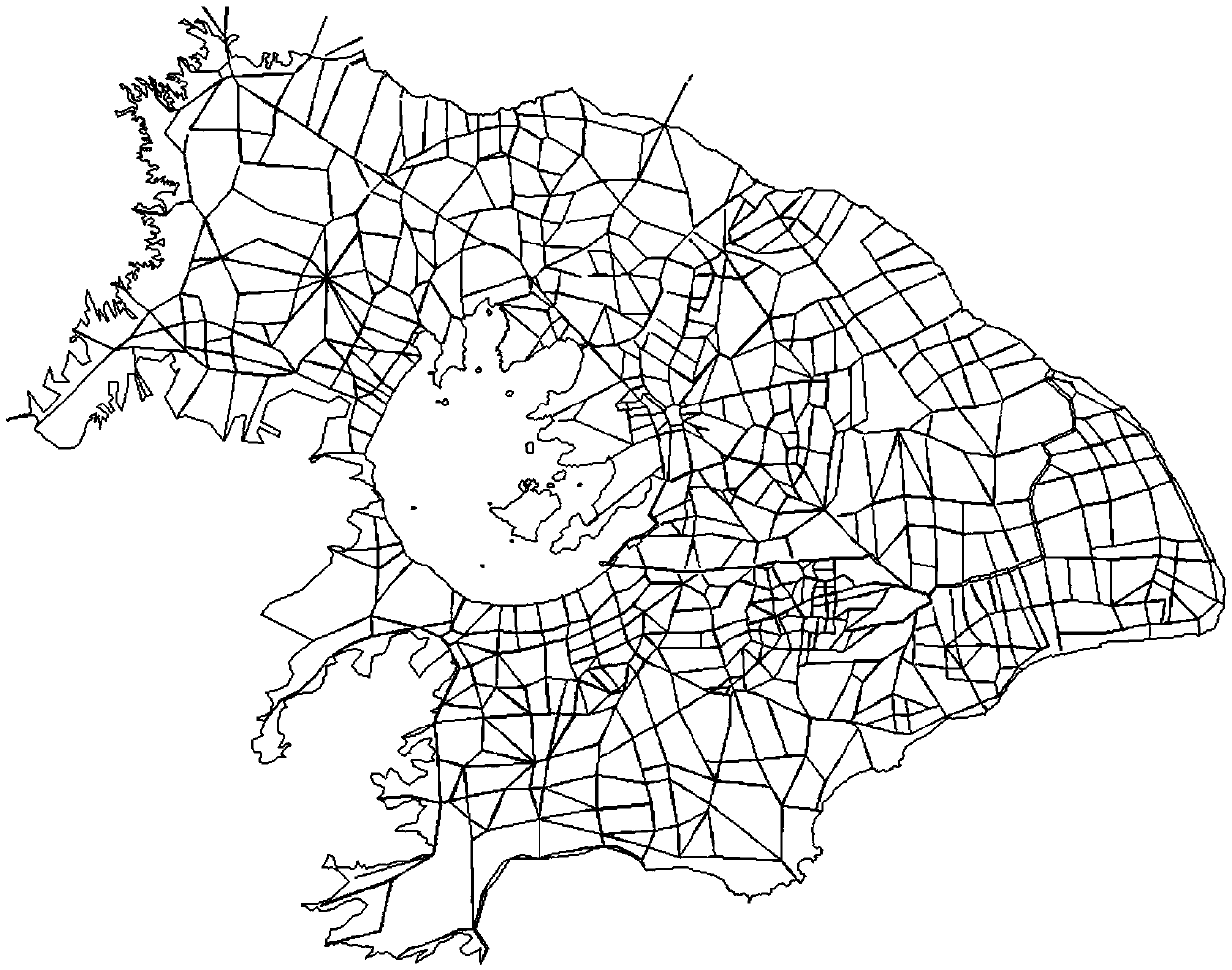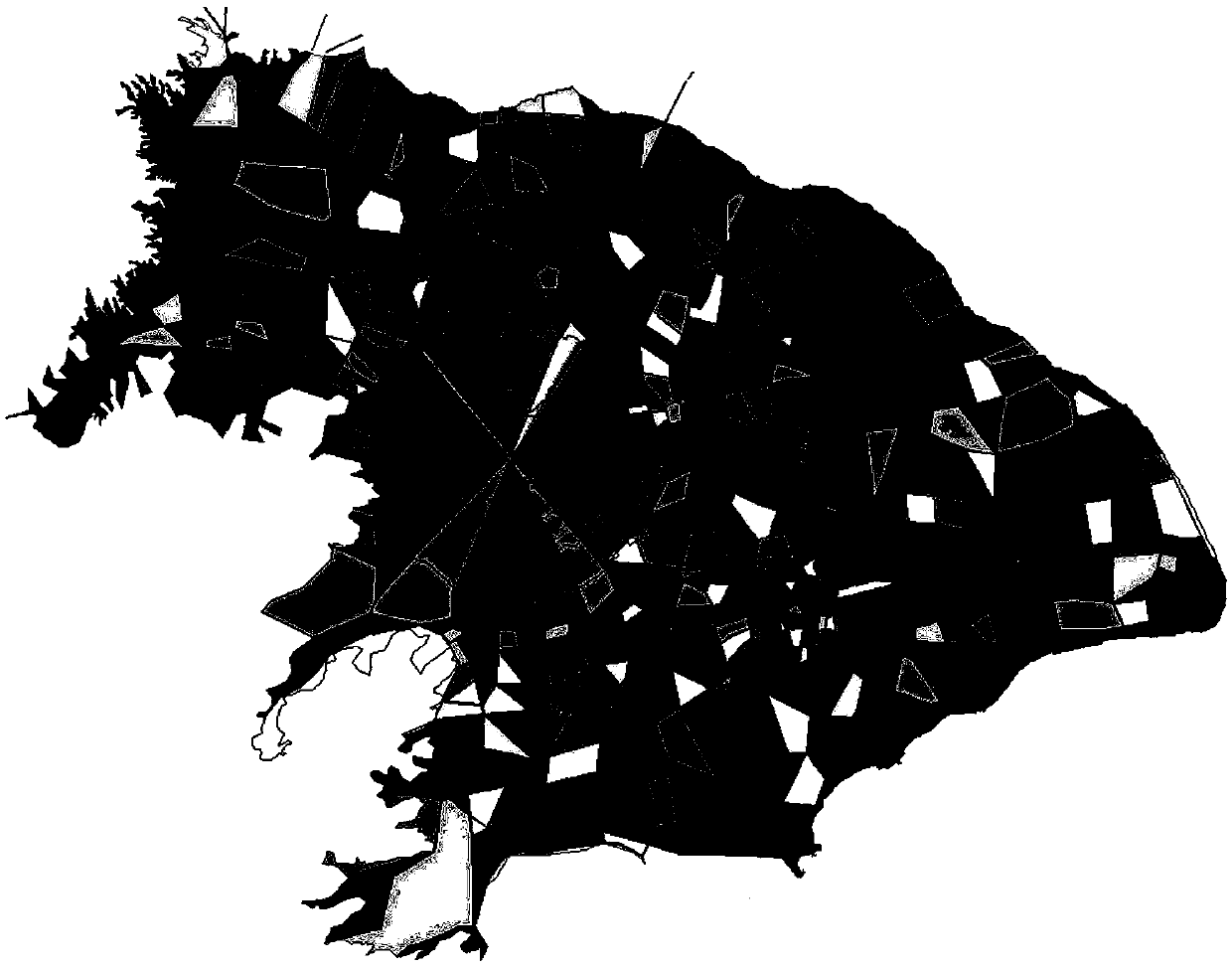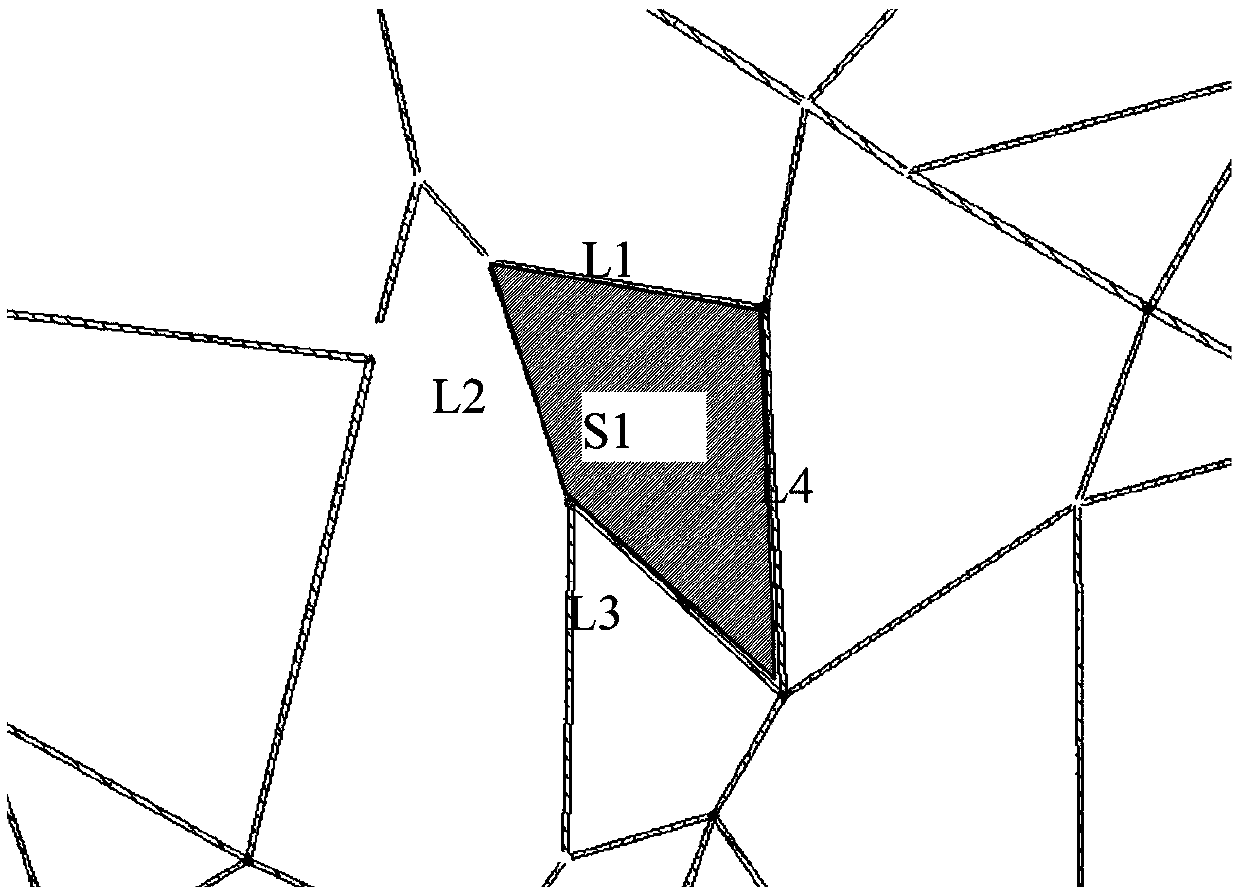Rasterization-based method of determining river surface source pollution load in plain river network area
A non-point source pollution and plain river network technology, applied in the environmental field, can solve problems such as the difficulty of dividing the boundary of non-point source and sink areas, and the inability to directly apply non-point source pollution models.
- Summary
- Abstract
- Description
- Claims
- Application Information
AI Technical Summary
Problems solved by technology
Method used
Image
Examples
Embodiment Construction
[0071] The present invention will be further described below in conjunction with the accompanying drawings and an actual calculation example in a certain plain river network area in eastern my country.
[0072] (1) Draw river network polygons
[0073] figure 1 It is a water system map of a plain river network area in eastern my country. The rivers in this area are criss-crossed, and the water system forms a typical network structure. Through the topological analysis of the river network structure, several polygons surrounded by adjacent river channels are generated, which are called "river network polygons", such as figure 2 shown.
[0074] The non-point source pollution generated in the polygon of the river network will flow into the surrounding rivers along with the rainfall-runoff. In order to calculate the non-point source pollution load and the confluence process in this area, it is first necessary to determine which river channel the non-point source pollution in eac...
PUM
 Login to View More
Login to View More Abstract
Description
Claims
Application Information
 Login to View More
Login to View More - R&D
- Intellectual Property
- Life Sciences
- Materials
- Tech Scout
- Unparalleled Data Quality
- Higher Quality Content
- 60% Fewer Hallucinations
Browse by: Latest US Patents, China's latest patents, Technical Efficacy Thesaurus, Application Domain, Technology Topic, Popular Technical Reports.
© 2025 PatSnap. All rights reserved.Legal|Privacy policy|Modern Slavery Act Transparency Statement|Sitemap|About US| Contact US: help@patsnap.com



